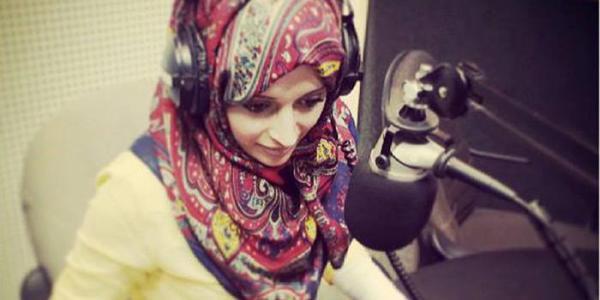Deutsche Welle – akademie
While researching institutions for disabled children, Jordanian journalist Hanan Khandagji found harrowing cases of child abuse. Her efforts were recently recognized by the German Development Media Award.
Posing as a volunteer worker, journalist Hanan Khandagji spent more than a year researching at Jordanian institutions for disabled children. Her discoveries were shocking: caregivers and nurses were abusing the children on a regular basis. Khandagji’s reports caused a sensation in Jordan and resulted in the king ordering a committee of inquiry. In August she received the German Development Media Award and says it has encouraged her to continue working as an investigative reporter.
You spent more than a year researching the abuse of disabled children in institutions. How did you become aware of the problem?
Hanan Khandagji: I took part in a training held by the International Center for Journalists in Egypt and met a colleague who told me about his sister’s plight. She lived in an institution for disabled children and was regularly beaten. I decided to look into the issue even though I had no previous experience as an investigative journalist. Given the obstacles it was anything but easy. I was then shattered by what I saw, by the abuse and the children’s living conditions, and this forced me to continue researching.
You went into these institutions disguised as a volunteer worker. Why?
I knew if I had gone into these places saying I was a journalist things would have seemed to be quite different. It would have looked like the children were being well cared for and that the nurses and caregivers were incredibly kind. That’s why I decided to go in as a volunteer worker. I was shocked by how the children were treated. I went to another institution and found the same abuses and conditions, and I interviewed parents who confirmed that their children were being beaten, burned and sexually abused. The medical reports I saw also confirmed this.
How dangerous is it for journalists in Jordan to take an investigative approach and delve into sensitive topics?
There are few opportunities to work this way but it can be done. However, not many journalists tackle sensitive issues. After my feature appeared online the directors and staff of several institutions were fired. If I had not had the support of King Abdullah II I likely would have faced consequences. I also had the backing of Albalad Radio – my employer – and the ARIJ (Arab Reporters for Investigative Journalism).
Has your work resulted in any legal ramifications for abuses like these?
There have definitely been some changes. Some of the institutions were closed down, and the King appointed a committee which produced a report within 14 days. It pointed to alarming conditions – to children being put into cages or given sleeping pills during the day to make them sleep. Seventeen heads of institutions had to appear before court on charges of torture and neglect. Some laws have been changed and there are tighter restrictions for establishing an institution, but there haven’t been any radical changes. It’s still fairly easy to establish an institution, and institutions should not be the ones hiring caregivers – this should be done by independent government agencies. Overall, there needs to be stricter supervision, and this could be partly done by organizations from civil society.
Given the context what does an award like the German Media Development Award mean to you?
I’ve been given three international awards, but for me this is the most important one. It’s encouraging and confirms that I should continue to work as an investigative journalist. I’m sure every journalist dreams of an award like this and I was very happy to get the news.
How do you see Jordan’s media developing over the next five years?
Journalists still face many constraints. Since the press and publication laws regarding website content were amended people have not been expressing their views as freely. Tighter restrictions also means that it’s become more difficult to establish a website. This is a bad time for freedom of the press in Jordan and I’m afraid things will get worse.









Leave a Reply